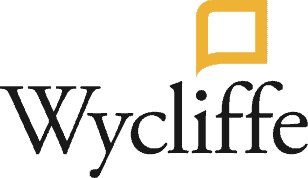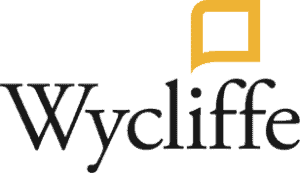During the COVID-19 pandemic, Bible translators in Cameroon are creating and distributing public health information about the disease, which one language community calls “pneumonia with thorns.”

Dieudonne Nsalar (left) of CABTAL with a Mohamo translator.
The Cameroon Association for Bible Translation and Literacy (CABTAL), a Wycliffe partner organization, gathered hygiene and social distancing information from the World Health Organization, along with other relevant material from the Cameroon government. The source material was written in English and French. Now, CABTAL translators are producing booklets and audio recordings in about 40 local language communities where they were already serving.
“There is information available on radio, social media and the CABTAL website now, but some of the people in these communities don’t have access,” said Keyeh Emmanuel, CABTAL’s general director. “So the printed version will be useful to them, especially in their language.”
The booklet is called What You Need to Know About the Coronavirus. CABTAL even produced its own photographs to go with the information. The photos show social distancing and other protective measures in a familiar cultural context for audiences.
The strategy varies. In some places, CABTAL has produced audio versions that are being aired on community radio. Where CABTAL has literacy work in progress, finished booklets are being recorded into SIL’s Bloom literacy software. Then a Bloom “talking book” can be sent to smartphones via the social network WhatsApp.
About 20 languages have been done so far, Emmanuel said. Plus, language groups working with other Bible agencies have also asked permission from CABTAL to translate the materials for their communities.
“We are trying to touch the communities using every available means we have,” he said. “Sometimes people are not sure about what is true and what is not true. So it is a way of helping them to have the right information and to correct some misinformation.”
In the Lamnso’ community, some people say the name given for Covid-19, Sòv njoŋ, already tells of the severity of the virus. It means, “pneumonia with thorns.”
While serving communities’ emergency needs, CABTAL’s efforts also serve the Bible translation movement.
“We decided quickly to do this, because we know if we do not alert and care for the communities, it will certainly affect the Bible translation work we are involved in,” Emmanuel said. “Translators would be at risk. Literacy people would be at risk. Their families would be at risk. So it is a way of being proactive.”
CABTAL and communities sign partnership agreements for the Bible translation and literacy work. Emmanuel views the COVID-19 information as a natural outgrowth of those agreements.
“In a partnership, we work together when things are going well and when things are challenging,” he said. “This is a time for us as CABTAL to take our responsibility to solidify this partnership with the communities by caring for them and giving them information that can help them to protect themselves and their families.”
Online comments have confirmed the strategy, Emmanuel added, especially from WhatsApp.
“One said, ‘I got the posting. Wow. The people who have done this, they don’t know what they are doing for the community. This is something really great, because people from the community will hear this in the language that they understand.’”
Cameroon, an east-central African nation of 25 million people, had reported 803 COVID-19 cases and 10 deaths as of April 13.
Source: wycliffe.net, from an article by Jim Killam

